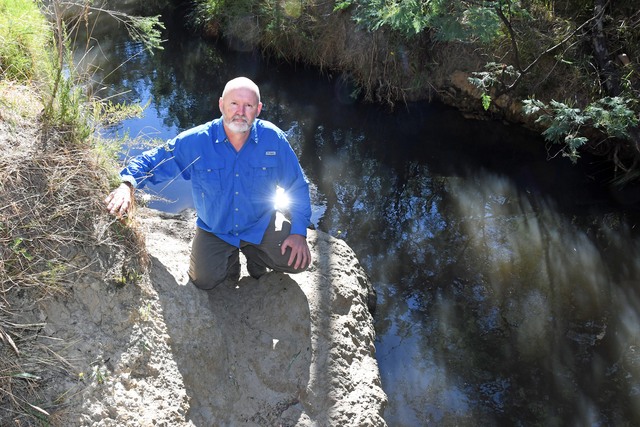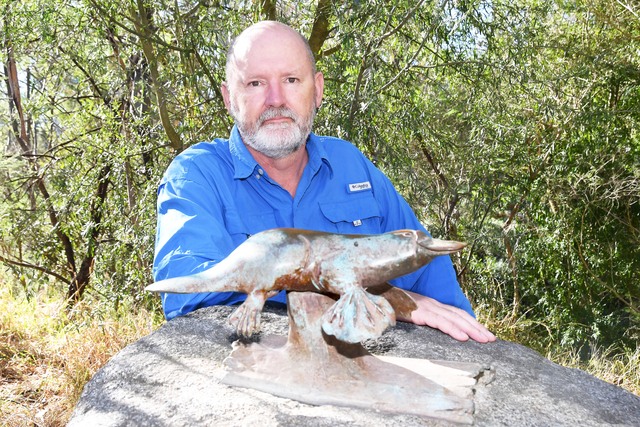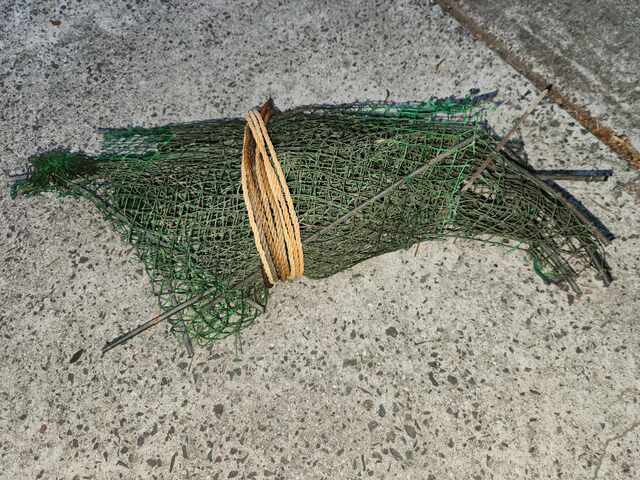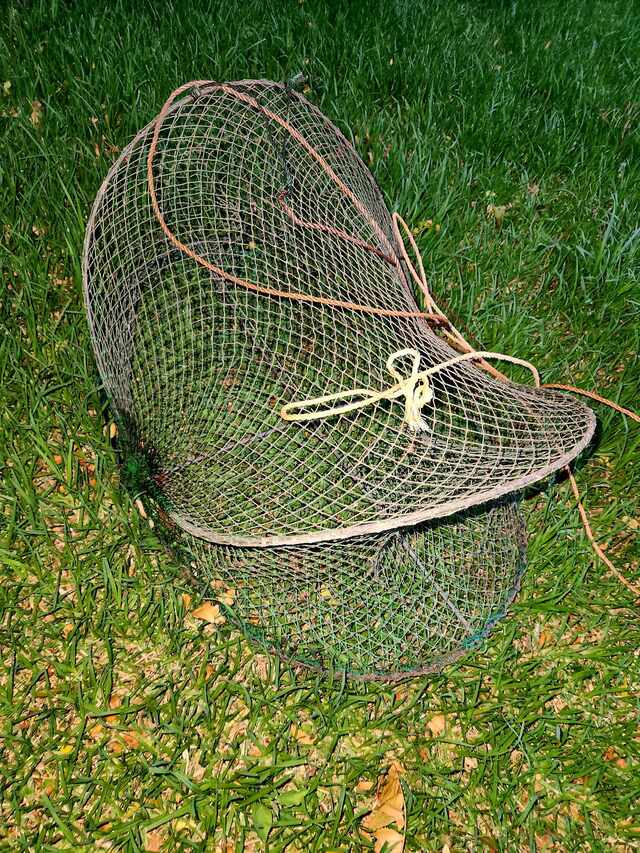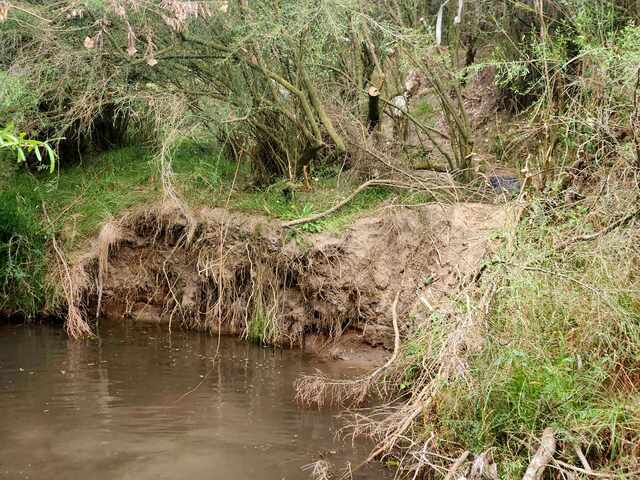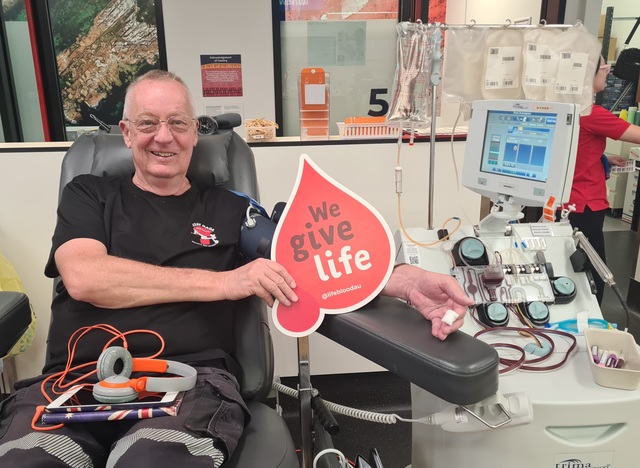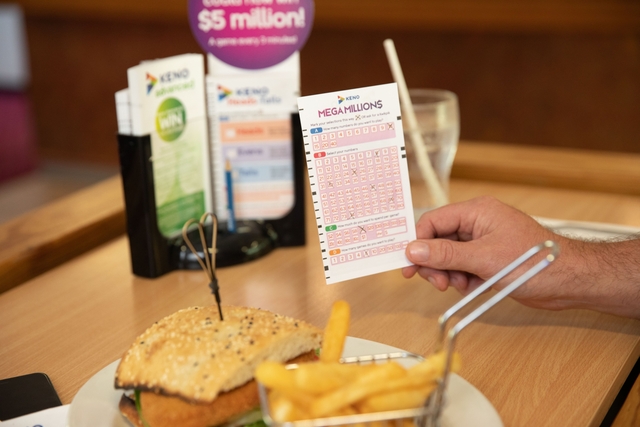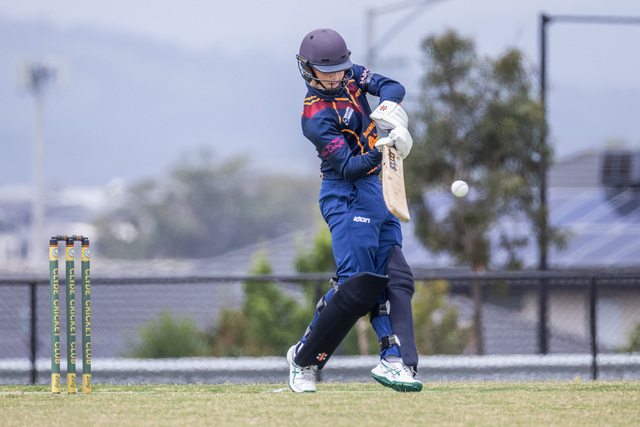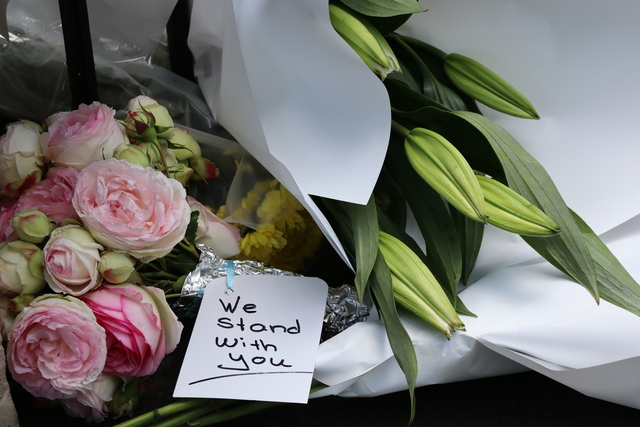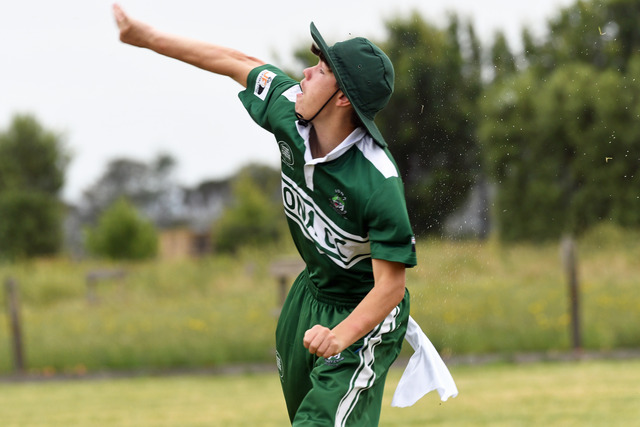Beaconsfield’s Mick Ott and his wife had a “disturbing” encounter with an illegal Opera House net during their evening walk along Cardinia Creek on February 10.
Mick, who has fished in Cardinia Creek since he was a kid, enjoys fishing as part of his routine. He often walks his dog, scanning the creek, and occasionally spots platypus feeding at dusk and swimming in the waterholes.
It was during his walk that he noticed a cord tied to a tree leading into a deep pool and suspected it was a net or trap. After crossing the creek, he found the top of an Opera House net in the water. He pulled it up and, thankfully, found no dead Platypus, though the net appeared to have been in the water for some time.
“It was disappointing to find an illegal Opera House net in the Cardinia Creek today in the Beaconsfield Flora and Fauna Reserve,” he said.
“These nets are illegal as they can trap and drown native wildlife like Platypus and Rakali.
Fortunately there was no evidence of a Platypus or Rakali being trapped in it.”
“I have seen photos of drowned Platypus trapped in these nets, I was glad I didn’t have to deal with that.”
Once he had removed the net from the water, Mick immediately contacted the Victorian Fisheries Authority (VFA), who advised him to destroy the net.
He took the net home and cut the steel frame up using a grinder, cut the net into spreads and put it into the bin.
The fisheries duty officer also assured him that they would increase patrols in the area. However this is not the first time Mick has come across illegal nets in the creek, as he had previously found more Opera House nets previously. According to Victorian Fisheries Authority (VFA), opera house nets have been banned in all Victorian public and private waters since 2019.
The opera house nets were banned because their use has been implicated in the drowning of air breathing wildlife, such as native water rats (rakali), platypus and turtles.
Another issue is that there was no evidence in the area to indicate who had placed the trap in the creek.
This incident not only exposed a culture of ignorance and a lack of knowledge about responsible fishing practices, but also highlighted the need for more VFA staff to patrol the entire state and local areas.
“I was asked if I could destroy it, if I was not able they could send someone out to collect it at a later date and have it destroyed. I was able to bust it up so it could never be used again,” Mick said.
“They were quick to respond but unfortunately due to the huge area they cover and staffing levels they were not able to send an officer out to meet me. The duty officer noted my details and authorised me to remove the net from the area.”
“We need to see more patrols of Fisheries Officers, the Victorian Government has done a lot lately to promote fishing as a family friendly past-time but very little has been done on the enforcement side of things. Unfortunately, regulation is just good advice without enforcement.”
Mick, who has lived in the area all his life, is pleased to see the Platypus population making a comeback but these types of activities are a huge risk to the Platypus population.
“Improvements in water quality and pollution control have certainly made the creek cleaner and the Platypus need that but there is still a lot of work to do in that respect,” he said.
“Who wouldn’t want to be able to walk along the creek and watch Platypus swimming and feeding? People pay to see that at the zoo.”
As an angler, Mick keeps up to date with the current fishing regulations, as it is important to him not to have a detrimental impact on the environment and other wildlife.
He believes there are a number of ways to help prevent the illegal use of Opera House nets.
Recreational fishing offers great physical and mental benefits, but it’s crucial that people enjoy it without harming the environment or wildlife. Understanding the regulations is key, and the VFA provides excellent resources, including an app, to help with this. When these nets were made illegal in 2019, the VFA ran a strong campaign, even offering a swap program for safer Platypus-friendly nets. Despite this, many of these nets are still available and can be purchased online.

